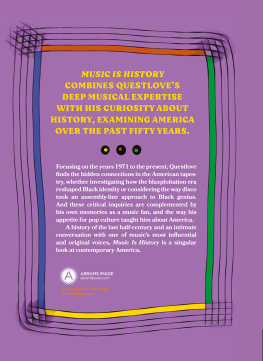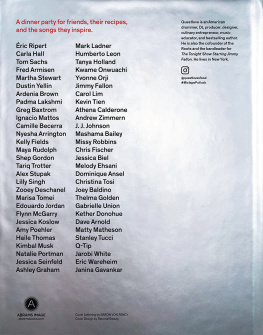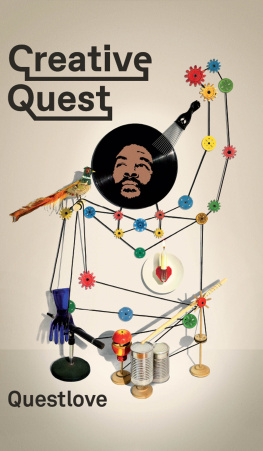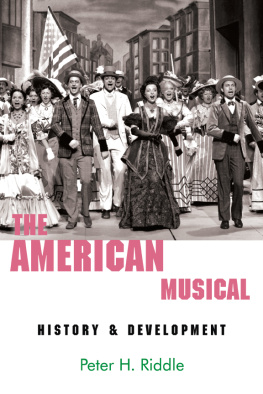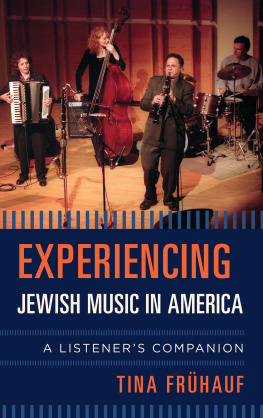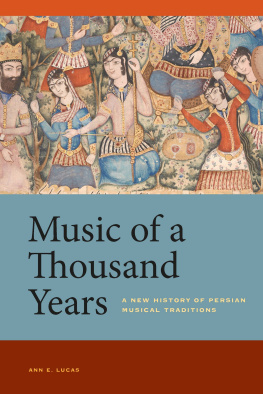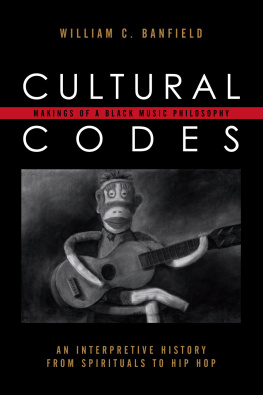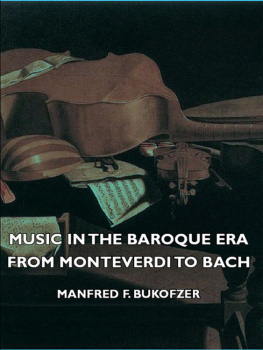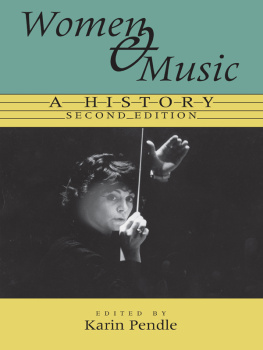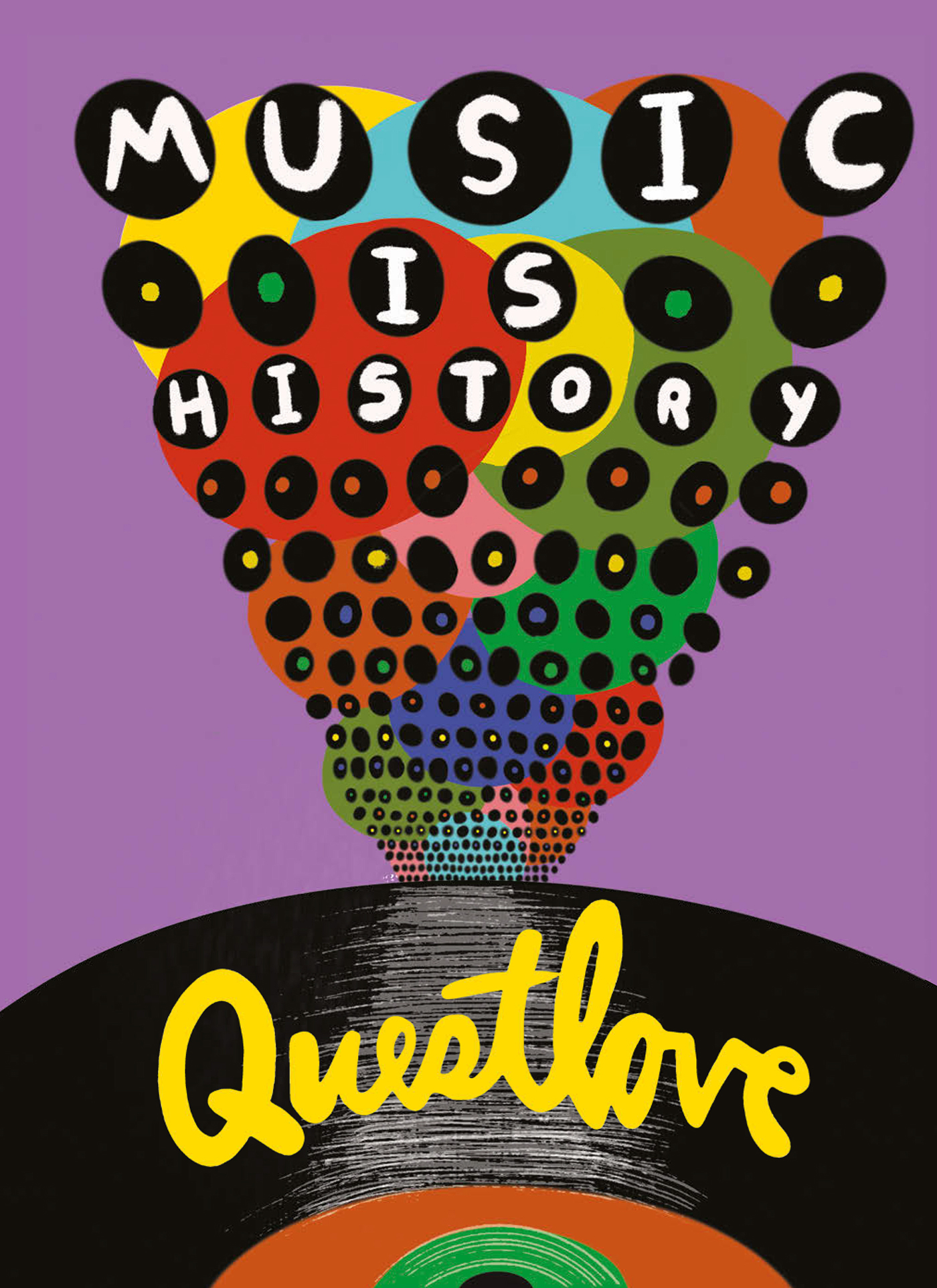
I dedicate this book to all scientists of sound.

CONTENTS
INTRODUCTION
As long as I can remember, I have been listening to music, and that means I have also been collecting it, categorizing it, building bridges between songs I loved from one era and songs I loved from another era, songs from one genre and songs from another. In retrospect, I was practicing a kind of history, though I wouldnt have used that word then, and Im a little reluctant to use it now.
Why? Because I remember how I approached history as a student back in school. I memorized what I was supposed to memorize and was lucky enough to have a good enough memory to get by, but I wasnt always sure what I was learning, other than how to memorize. What if history wasnt just a few big events keyed to a few big dates and a long list of names? What if it was everything else? People say that history was written by the winners, but what if it was written by the simplifiers. Or is that too simple?
A few years back, I was asked to contribute an original song to Kathryn Bigelows movie Detroit. I was aware of the events the film related, more or less. It was set during the Long Hot Summer of 1967, which saw a number of American cities fed up with police violence erupt with civil unrest: Atlanta, Boston, Cincinnatiand thats just the beginning of the alphabet. Then came Detroit. I knew Detroit had burned, and that it was the site of a disproportionate amount of the violence in America that summer. But, at the time, I didnt know much about the specific story at the heart of the movie, the Algiers Motel incident, in which a group of young Black men at a Detroit motel were brutally beaten by police.
Kathryn screened the movie for me. Near the beginning, there was a scene inside a concert hall. A group was about to go onstage. Just before they could, the cops shut down the hall and sent the group packing. No show tonight. I got up out of my seat and found the projectionist. Is this the Dramatics? I asked. He nodded. I knew the Dramatics from history, or at least music history. In the mid-60s they had released a song called Bingo by a small label under the control of Golden World, a Detroit indie operation owned by a man named Ed Wingate. A few years later, Motown took over Golden World, and the Dramatics released a regional hit, All Because of You. That night in 1967, they were scheduled to perform the song at a showcase. But events overtook them, and they got into their vehicle to head home.
As the movie went on, I learned that the Dramatics werent just incidental to the plot. They were central to it. As they drove away, they were surrounded by protestors and had to split up. Some of them, including the vocalist Ron Banks, found their way home. Others, though, didnt. Another of the groups singers, Cleveland Larry Reed, and a young man named Fred Templea friend of the band who is sometimes called a bodyguard, sometimes a valetinstead ended up in a local motel, at which point they were pulled into the darkest heart of history. I wont say more. I dont want to ruin the suspense of the movie. Is that strange, to worry about suspense in a story from fifty years ago? Or is suspense more dependent upon what is known than what happened?
Thats what happened. The Dramatics changed the way I watched the movie. They didnt make it more dramatic, ironically, but they made it more real. There was something about watching two strands of history intertwine, about watching the large textbook narrative (Detroit, 1967) intersect with this very specific set of sense memories (hearing the Dramatics on the radio when I was a kidthough most of their songs were sung by Banks, who stayed with the group, rather than Reed, who was so shattered by his night in the Algiers that he left secular music for the church). There was the official record, and then these other records, which were actual records. The song that the Roots wrote for the movie, It Aint Fair, with Bilal singing, made it more real all over againit was a song about pain and injustice that we recorded at Diamond Mine in New York, where I thought we could get a sound like Motowns Studio A. I was trying to join up with the past in my own way. It Aint Fair went on the movies soundtrack album next to songs by Marvin Gaye, Brenda Holloway, Martha Reeves, and others. The song, about history, was placed in music history, and became both. (The entire soundtrack pays off that idea of the present overlaid on the past, sometimes in surprising ways. Im thinking of Grow, where the actor Algee Smith, who plays Cleveland Larry Reed, duets with the man himself.) Despite my overall discomfort with the execution of the filmwhen is Black pain art, and are there times when depictions of it cross the line?we managed to turn the song around and get a frame around the film.
Detroit was an especially explicit version of something that had always been implicit. When I think about historywhat Ive learned, how Ive learned, when in my life Ive been ready to learnits always connected to music. Its not too much of an exaggeration to say that I think of the America we live in as a series of songs, partly because I think of everything that way. When I remember my own childhood, almost every event is keyed to a song. My parents were touring musicians, which meant that they would go away for stretches and leave me and my sister with my grandmother, and that meant that songs I heard, whether on the radio or my small 8-track player, were not only burned into my brain but time-stamped. Rufuss Egyptian Song reminds me of the nights before they went away. Deniece Williamss Song Bird reminds me of when the loneliness of being at my grandmothers started to sink in. Those moments of personal history hang from those songs like banners.
Maybe the best metaphor isnt individual songs, but record albums. Back in the 1920s and 30s, when music was recorded on 78 rpm discs, companies would sell binders for storing a set of them. They came to be called record storage albumslike photo albums. Later on, after the LP was invented in 1948, multiple songs could go on the same round platter. When the record album was born, the record storage album died. But I still approach history the same way. When I go back through the past in my mind, I imagine flipping through pages.
What I have tried to do in this book is to move year by year through modern historyand by modern history, I mean the slice of the planet, and specifically America, that coincides with my life. Im starting in 1971. For each year, I am selecting a song that represents some idea connected to history: how it was experienced at the time, or how it is learned and understood, or what figures surface within it, or how different versions of it are reconciled, or how they cannot be. Sometimes Ill look at actual music historywho made which records when, and how the circumstances of their creation can teach us all about the art form and the society that defined (and redefined) it. And sometimes Ill use ideas about music to illustrate ideas about history. Why do some moments surge up the charts while others fall away? Are some events A sides, while others are B sides? What is historys equivalent of liner notes? In the Roots, when we thought of titles for our albums, we wanted them to have three layers of meaning: to refer to something that was happening within the band, something that was happening in the hip-hop world, and something that was happening in the world in general. I have tried for a version of that here.
Next page
